Two-hour blockade of social networks cost Uzbekistan at least $2.6 million
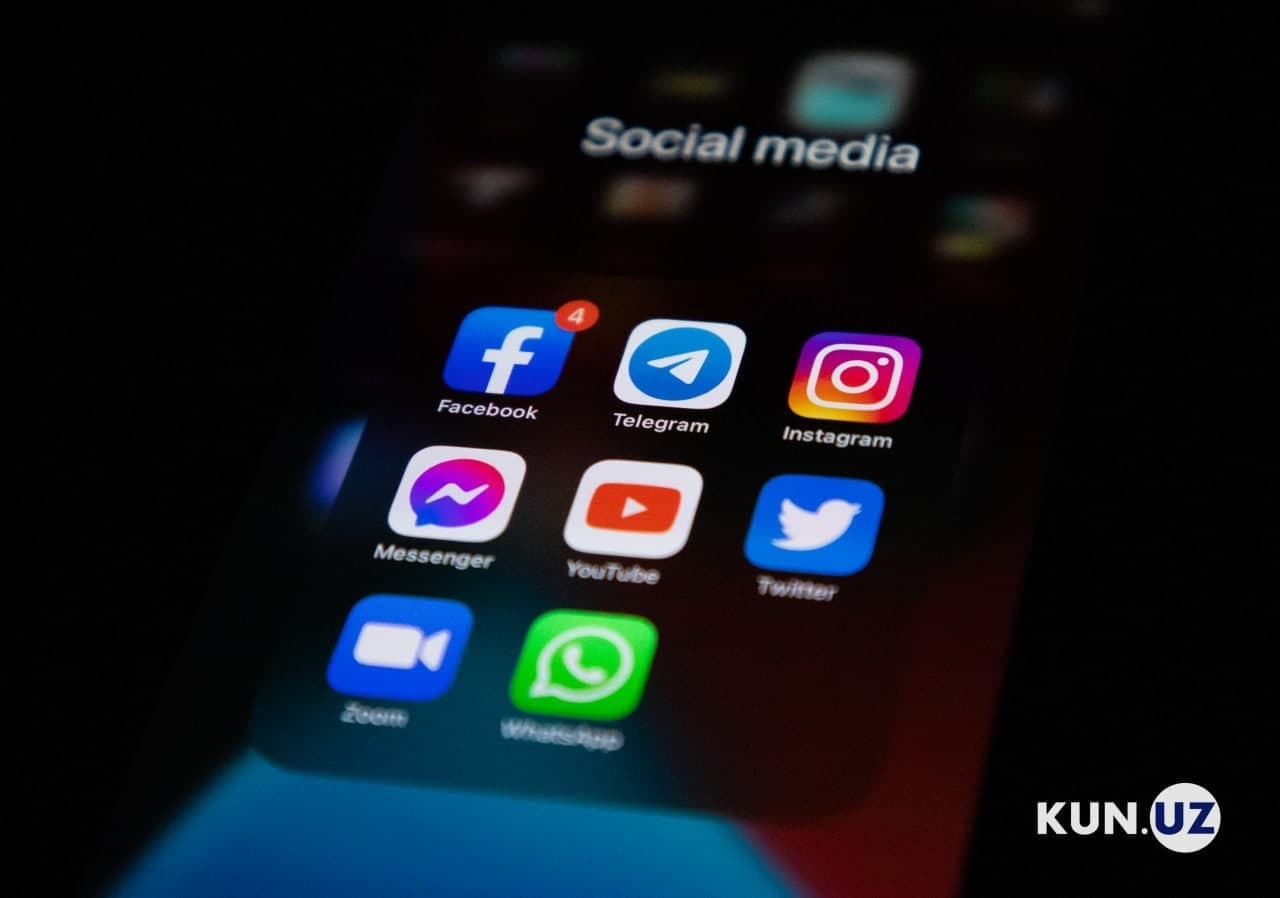
Photo: Kun.uz
According to the online service NetBlocks, blocking all social networks for 2 hours have cost the Uzbek economy more than 28 billion soums.
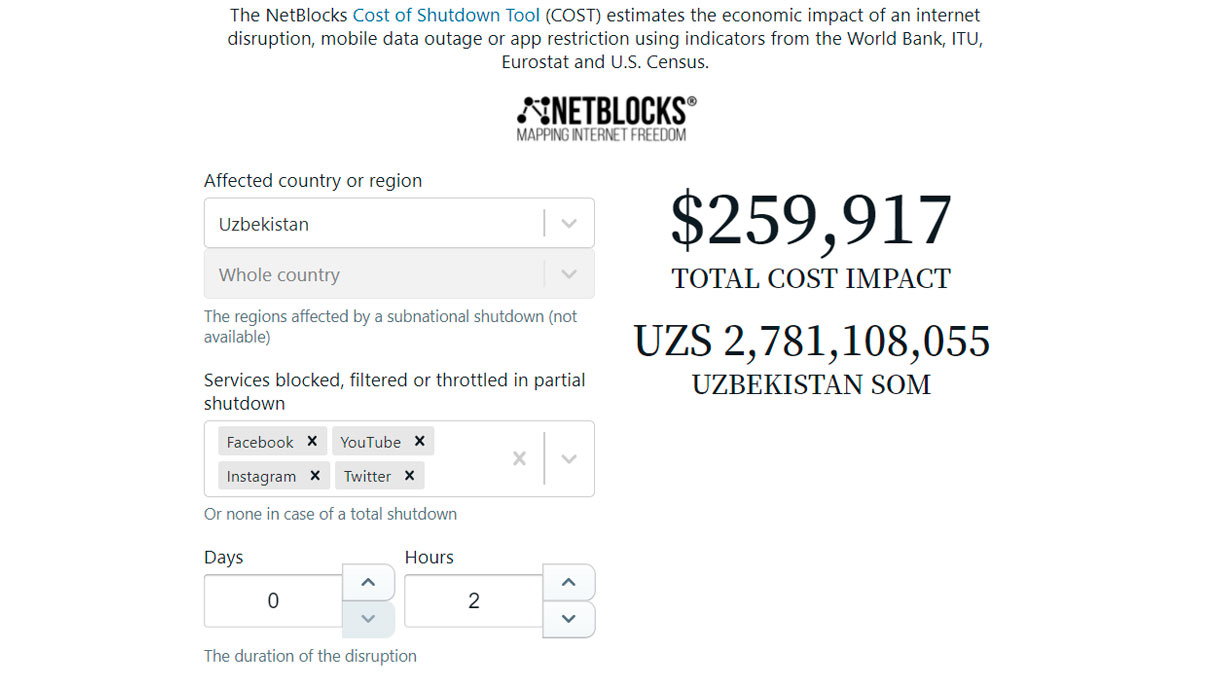
On November 3, the operation of 4 Internet platforms in Uzbekistan was limited to about two hours. Three senior officials were later fired for doing so without the presidential consent.
The service, created by the NetBlocks service, calculates how much it costs the state to block social networks based on its own formula.
Reportedly, the blocking of Twitter, Facebook, Instagram and YouTube in Uzbekistan from 19:00 to 21:00 on November 3 could have cost the Uzbek economy at least $259,000 or 2.781 billion soums.
This service does not count the damage that comes/goes after blocking Telegram, TikTok, WeChat and Vkontakte. Therefore, they were not included in the above calculations. The service estimates that the closure of all networks in Uzbekistan during those two hours will cost about $2.6 million.
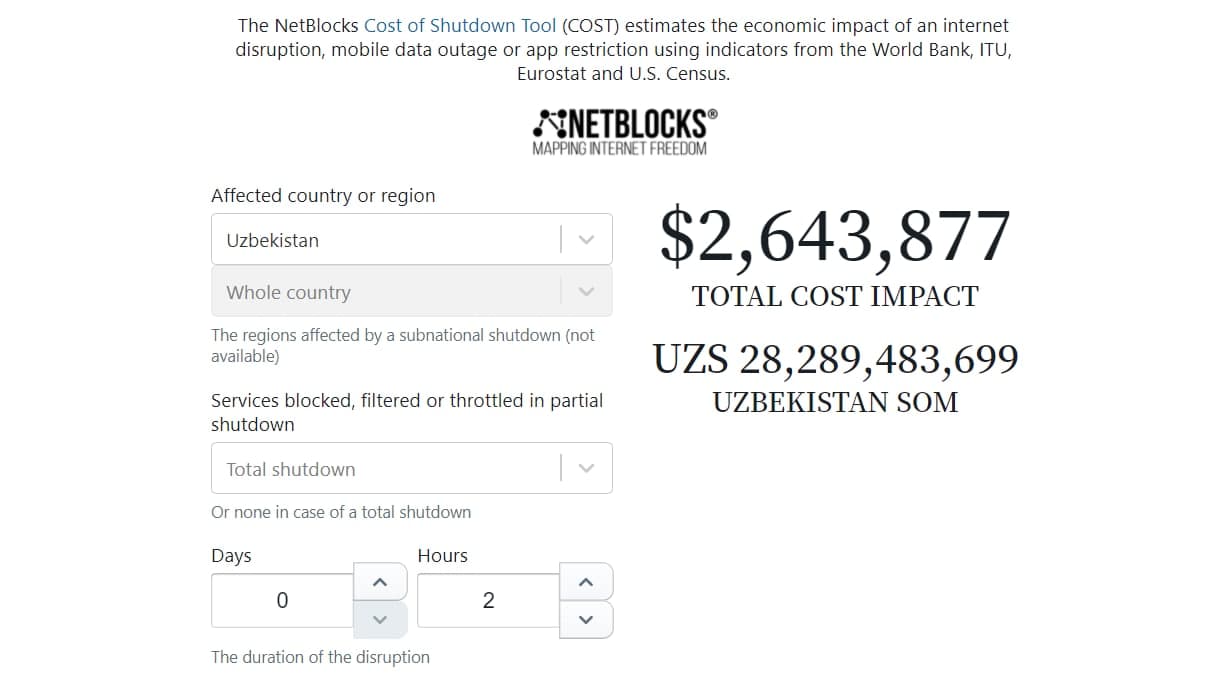
The Uzbek economy has lost about $101.3 million, or 1.84 trillion soums, since Twitter was shut down on July 2 and is still blocked (July 2-November 9). More specifically, the state continues to suffer, as Twitter’s activities in Uzbekistan are still limited.
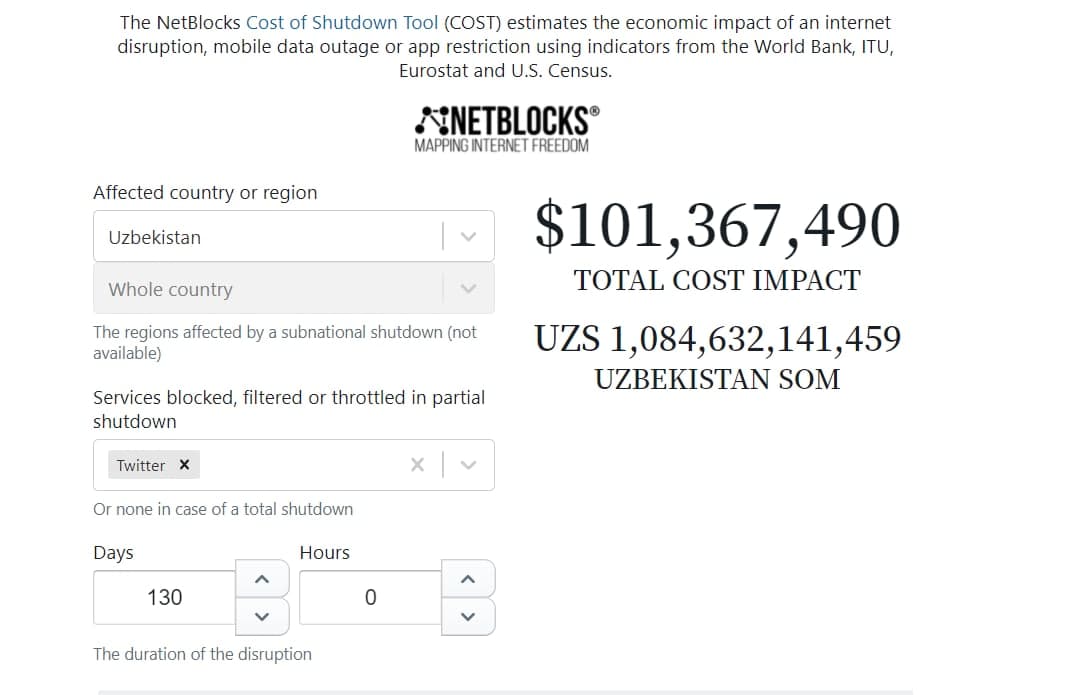
The NetBlocks rating service was launched in January 2019. This service calculates based on its own formula how much damage can be done to the economy if all social networks or individual platforms are blocked.
The World Internet Community and the NetBlocks think tank, which brings together more than 20,000 members from 180 countries, are the authors of this counter.
According to the service, the losses following the blockade will be calculated on the basis of many regional indicators of the World Bank, the International Electronic Communications Council, Eurostat and other sources.
The Uzbek government has not yet commented on the above incident.
Deputies of the Oliy Majlis and senators who adopted the law may also not have substantiated economic analysis of its implementation.
Moreover, such a controversial and ill-considered law, which does not serve human dignity in the age of digital technologies, and its negative impact on public confidence, its negative impact on the country’s image in the international arena, investor opinion, and tourism potential cannot be measured in billions.
These actions were taken in accordance with Article 27-1 of the Law “On Personal Data” for failure of Facebook, Google, Telegram and other services to physically store the personal data of citizens of Uzbekistan in the territory of the republic.
Recommended
List of streets and intersections being repaired in Tashkent published
SOCIETY | 19:12 / 16.05.2024
Uzbekistan's flag flies high on Oceania's tallest volcano
SOCIETY | 17:54 / 15.05.2024
New tariffs to be introduced in Tashkent public transport
SOCIETY | 14:55 / 05.05.2023
Onix and Tracker cars withdrawn from sale
BUSINESS | 10:20 / 05.05.2023
Latest news
-
Lemon prices in Uzbekistan triple amid global supply challenges
SOCIETY | 21:05 / 19.06.2025
-
Saudi Arabia reopens e-visa access to citizens of Uzbekistan
SOCIETY | 20:02 / 19.06.2025
-
Sudden wind shift disrupts flight operations in Tashkent
SOCIETY | 19:08 / 19.06.2025
-
Human rights advocates: Bukhara governor’s remarks damage Uzbekistan’s global reputation
SOCIETY | 19:06 / 19.06.2025
Related News
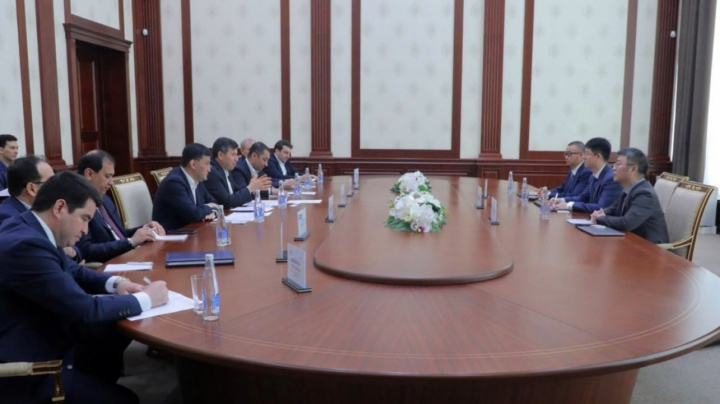
16:13 / 24.04.2025
WeChat Pay may enter Uzbek market through local system integration

12:59 / 14.04.2025
Uzbekistan aims to link domestic payment systems with Chinese WeChat and Alipay for tourism payments

08:56 / 22.06.2024
Woman abandons her children to an online friend in Tashkent
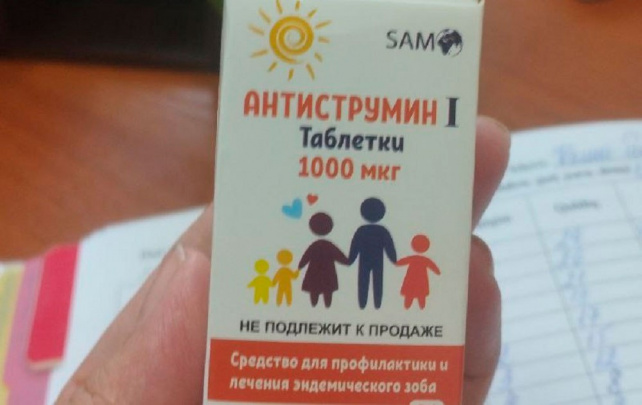
15:59 / 28.11.2023



